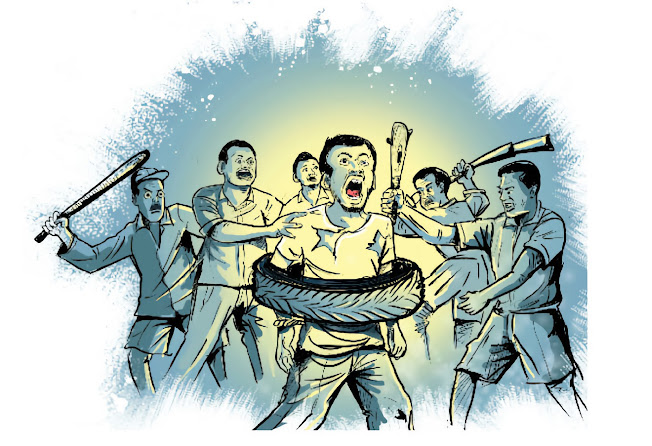Promoting the right to education
Global Dignity Forum, a registered non-profit organisation in Ghana believes that one of the purposes of education is to strengthen respect for human rights and fundamental freedoms without discrimination. The right to education, therefore, includes people's right to receive, and the duty of states to provide, even if this is not explicitly mentioned in national laws and policies.
Article 25 of Ghana's 1992 Constitution with amendments through 1996 adequately provides for education rights. Clause 1 of Article 25, for example, states that "All persons shall have the right to equal educational opportunities and facilities and With a view to achieving the full realization of that right—
(a) basic education shall be free, compulsory and available to all;
(b) secondary education in its different forms, including technical and vocational education, shall be
made generally available and accessible to all by every appropriate means, and in particular, by
the progressive introduction of free education;
(c) higher education shall be made equally accessible to all, on the basis of capacity, by every
appropriate means, and in particular, by the progressive introduction of free education;
(d) functional literacy shall be encouraged or intensified as far as possible;
(e) the development of a system of schools with adequate facilities at all levels shall be actively
pursued.
The above comprehensive provision of educational rights in Ghana's 1992 Constitution shows the importance of education to the country. Through education, people can:
§ learn about life and work, so as to have more social
and economic opportunities and make better choices about how they want to live;
§ enjoy learning among friends and fellow students;
§ develop their own personality;
§ know about their rights and how to claim them;
§ know about the rights of others and how to respect them;
§ know about their duties to other individuals and their
community;
§ give their children a better start in life;
§ know how to find the information they need;
§ keep up to date with what is happening in their community
or country;
§ participate in decisions that affect them, and
§ challenge decisions made by others that make their lives
difficult.
With an educated population and a commitment to uphold human rights, a government is in a good position to avoid conflict and advance the country’s development.
Education
is the primary tool for promoting human rights, equality and
non-discrimination. It also promotes peace through increased understanding,
tolerance, respect and friendship among different groups and cultures.
Education enables people to participate actively in society and in business to create jobs, expand industry and raise living standards.
“Personality development” has been described as a part of “learning to be”. In addition to gaining knowledge and skills and being part of a community (“learning to know, learning to do and learning to live together in tolerance and friendship”) education must develop the personality. This involves, among other things, developing capacities such as memory, reasoning, aesthetic (appreciation of beauty), imagination, communication skills and physical capacities.
United Nations Committee on Economic, Social and Cultural Rights General Comment No. 13 on Article 13 of the International Covenant on Economic, Social and Cultural Rights notes that “Education is both a human right in itself and an indispensable means of realizing other human rights.”
Education
is essential for:
§ - lifting economically and socially marginalized adults and children out of poverty and enabling them to participate fully in their communities
- empowering women and safeguarding children from exploitation and hazardous labour and sexual exploitation; and
§ - promoting
human rights and democracy, encouraging the protection of the environment and
helping to control population growth.
Reference:
* The 1992 Constitution of Ghana
* HAKI
ZETU – ESC Rights in Practice – The Right to Education
* Learning to be. A holistic and integrated approach to values education for human development. UNESCO, 2002.
Photo Credit: <a href="https://www.freepik.com/photos/kids-classroom">Kids classroom photo created by freepik - www.freepik.com</a>




Comments
Post a Comment